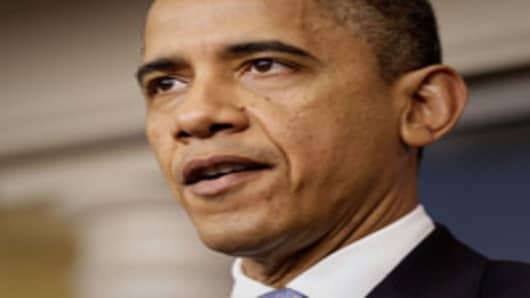2) banks are underperforming because an Obama victory would be more punitive for banks
3) bonds in the U.S. and Germany are up because a slow-growth environment is likely under Obama.
Why I don't completely buy into this: the dollar index has risen for two days to a two-month high; if an Obama victory was much more likely, and a stimulus-friendly Fed was more likely, seems like the dollar would drop, not rise.
There is an interesting historical trend favoring the incumbent, however. Sam Stovall, again at S&P Capital IQ, has noted the following trend: since 1900, if the S&P 500 rose in price from July 31 through October 31 of a Presidential election year, the incumbent party was reelected 80% of the time. A negative price performance during that three-month period yielded an 88% chance of being replaced.
The S&P is up more than 2.6 percent since the end of July.
Regardless: the major risk for the markets is uncertainty. Much of that will likely go away post-election. And that will likely help stocks.
The key fact is that neither an Obama nor a Romney victory will spare anyone the need for a compromise on the fiscal cliff. Once the election is over, it seems highly unlikely that either party are going to risk a recession just to prove an ideological point.
And, in particular, if the status quo prevails (Obama wins, House remains Republican, Senate remains Democratic) there will be pressure to address the fiscal cliff before January.
House Speaker John Boehner is trying to talk down the possibility of compromise any time soon. He says the most likely outcome of a lame duck is "some type of a bridge," meaning a temporary extension of the tax cuts into 2013.
That may be good enough for the time being. A deal will be made on the fiscal cliff. My bet is that after after all the maneuvering, the Bush tax cuts will be extended for another year.
What about the rest of the fiscal cliff? Seems like a fairly good chance the payroll tax cut will expire, and I give 50-50 odds that the long-term unemployment benefits will not be extended any further than they have been. This will have some impact on GDP, but much less than if the Bush tax cuts were allowed to expire.
The counter-story to "fiscal cliff uncertainty" is this: markets often hit bottom before an actual resolution is reached. For example, markets hit bottom in Europe (October-November 2011) before any coherent policy reaction came out; some are betting that is likely now.
The worst-case scenario: a recount. Heaven spare us from a post-election recount. Gads. Remember the 2000 elections? We had hanging chads and Al Gore winning the popular vote but losing the electoral vote. It took 1.5 months to decide the outcome. The result: the stock market dropped nearly 10 percent in that time period. Yes, we had the dot-com bubble bursting that was clearly a factor, but still. No hanging chads, please!
—By CNBC's Bob Pisani
_____________________________
Bookmark CNBC Data Pages:
_____________________________
Want updates whenever a Trader Talk blog is filed? Follow me on Twitter: twitter.com/BobPisani.
Questions? Comments? tradertalk@cnbc.com



